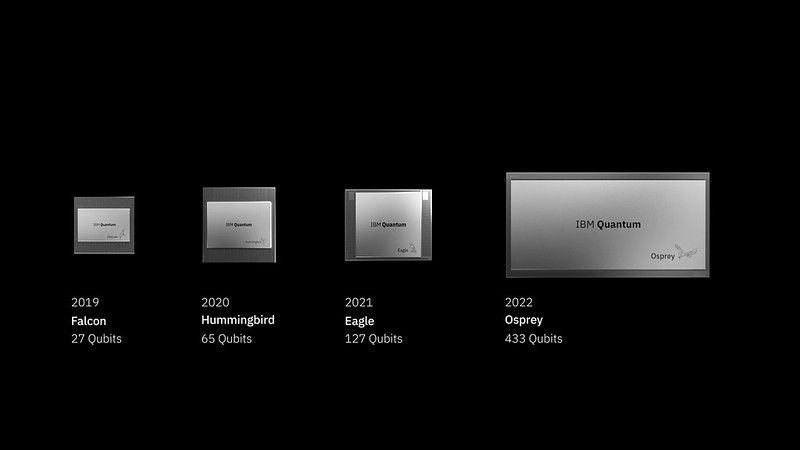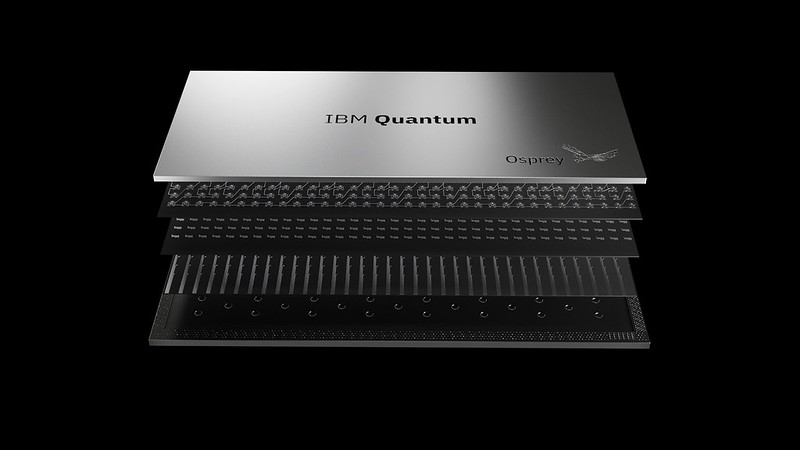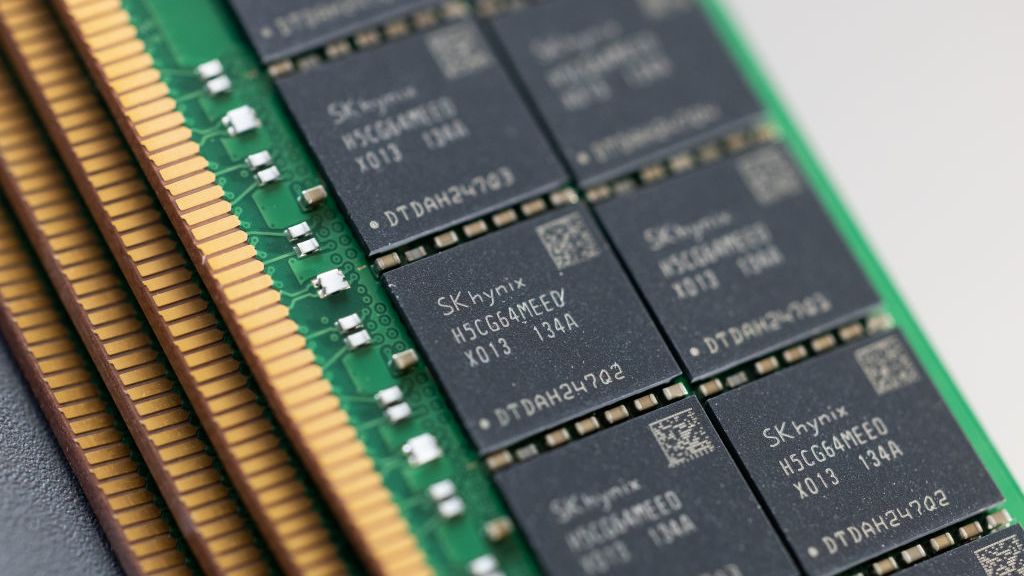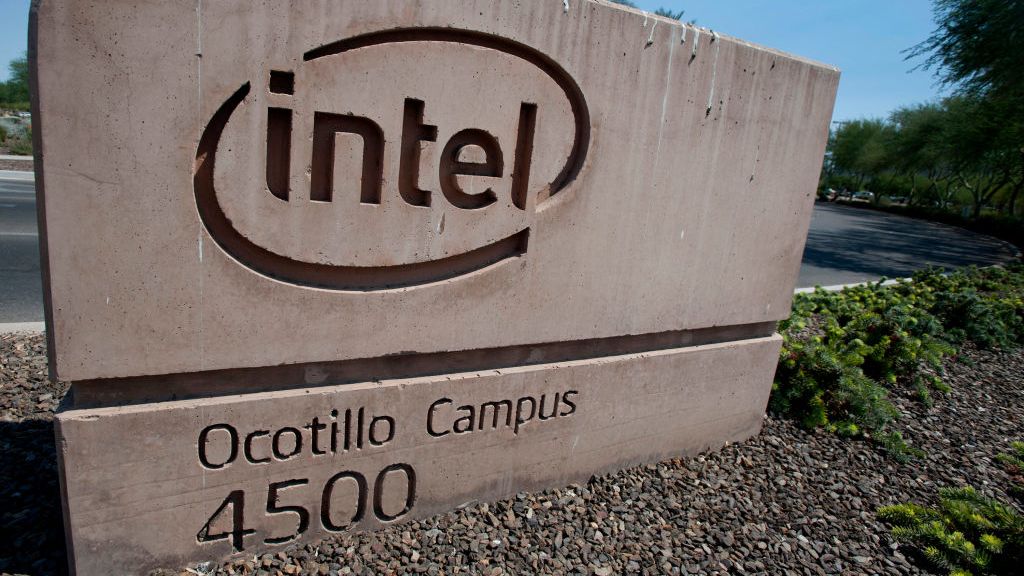IBM unveils its 'most powerful' 433-qubit quantum processor
The Osprey is three times more powerful than IBM's 127-qubit Eagle processor the company launched a year ago


IBM has unveiled its new 433-quantum bit (qubit) processor, while adding three new companies to its quantum network.
The company said the IBM Osprey, its new processor, has the largest qubit count of any IBM quantum computing processor, more than three times the number of qubits in its 127-qubit IBM Eagle processor released in 2021.
The processor is expected to run complex quantum computations beyond what normal computers are able to. To underline its power, IBM said that the number of classical bits that would be necessary to represent a state on the new processor far exceeds the total number of atoms in the known universe.
Additionally, IBM revealed its IBM Quantum System Two, its quantum system that’s designed to be modular and flexible by combining processors into a single system, is expected to be online by the end of 2023.
The company said this machine will be a building block of quantum-centric supercomputing. The company’s goal is to scale up its systems to over 4,000 qubits by 2025, which it says will go beyond the capabilities of existing physical electronics.

“The new 433 qubit ‘Osprey’ processor brings us a step closer to the point where quantum computers will be used to tackle previously unsolvable problems,” said Dr Darío Gil, senior vice president of IBM and director of research.
“We are continuously scaling up and advancing our quantum technology across hardware, software, and classical integration to meet the biggest challenges of our time, in conjunction with our partners and clients worldwide. This work will prove foundational for the coming era of quantum-centric supercomputing.”
Get the ITPro daily newsletter
Sign up today and you will receive a free copy of our Future Focus 2025 report - the leading guidance on AI, cybersecurity and other IT challenges as per 700+ senior executives
RELATED RESOURCE

IBM has also added new companies to its IBM Quantum Network, made up of over 200 Fortune 500 companies, universities, laboratories and startups that are working towards a quantum future.
This includes Vodafone, to explore quantum computing and quantum-safe cryptography, the French bank Crédit Mutuel Alliance Fédérale, to find use cases in financial services, and Swiss innovation campus uptownBasel, to boost skill development and promote leading quantum and high-performance computing (HPC) projects.
The companies will have access to the world’s largest fleet of over 20 quantum computers which can be accessed through the quantum cloud, said IBM.

“As we continue to increase the scale of quantum systems and make them simpler to use, we will continue to see adoption and growth of the quantum industry,” said Jay Gambetta, IBM fellow and VP of IBM Quantum.
“Our breakthroughs define the next wave in quantum, which we call quantum-centric supercomputing, where modularity, communication, and middleware will contribute to enhanced scaling computation capacity, and integration of quantum and classical workflows.”
A year ago, IBM unveiled the Eagle processor, the company’s first quantum chip that surpassed 100 qubits. IBM developed a new 3D packaging architecture to build the Eagle, and the company said it could be used to develop more advanced quantum processors in the future.
Zach Marzouk is a former ITPro, CloudPro, and ChannelPro staff writer, covering topics like security, privacy, worker rights, and startups, primarily in the Asia Pacific and the US regions. Zach joined ITPro in 2017 where he was introduced to the world of B2B technology as a junior staff writer, before he returned to Argentina in 2018, working in communications and as a copywriter. In 2021, he made his way back to ITPro as a staff writer during the pandemic, before joining the world of freelance in 2022.
-
 Bigger salaries, more burnout: Is the CISO role in crisis?
Bigger salaries, more burnout: Is the CISO role in crisis?In-depth CISOs are more stressed than ever before – but why is this and what can be done?
By Kate O'Flaherty Published
-
 Cheap cyber crime kits can be bought on the dark web for less than $25
Cheap cyber crime kits can be bought on the dark web for less than $25News Research from NordVPN shows phishing kits are now widely available on the dark web and via messaging apps like Telegram, and are often selling for less than $25.
By Emma Woollacott Published
-
 Magnetic tape storage has found a new lease of life with a record 152.9 exabytes shipped worldwide in 2023 — and the rise of generative AI is a key factor
Magnetic tape storage has found a new lease of life with a record 152.9 exabytes shipped worldwide in 2023 — and the rise of generative AI is a key factorNews Magnetic tape storage is back in vogue thanks to the rise of generative AI and ransomware, according to new research
By Steve Ranger Published
-
 Cyber-resilient data storage for everyone
Cyber-resilient data storage for everyoneWhitepaper Improve cyber resilience and optimize performance
By ITPro Published
-
 MSG giant Ajinomoto's chipmaking foray helps break financial records
MSG giant Ajinomoto's chipmaking foray helps break financial recordsNews In addition to umami seasoning, the company produces a microfilm insulation used by the semiconductor industry which was repurposed from its amino acid technology
By Zach Marzouk Published
-
 Blackberry revenue falls by 4% as cyber security division takes hit
Blackberry revenue falls by 4% as cyber security division takes hitNews Despite this, the company’s Internet of Things (IoT) division increased its revenue by 28% as it attracted new customers from the automotive sector
By Zach Marzouk Published
-
 SK Hynix splashes out $11 billion on new semiconductor plant
SK Hynix splashes out $11 billion on new semiconductor plantNews The company will produce memory chips, but will reportedly decided closer to the time whether they will be DRAM or NAND flash chips depending on market conditions
By Zach Marzouk Published
-
 Intel strikes $30 billion private equity partnership to fund Arizona plant expansion
Intel strikes $30 billion private equity partnership to fund Arizona plant expansionNews Brookfield Infrastructure Partners will invest around $15 billion into the expansion of the chipmaker’s Ocotillo campus
By Daniel Todd Published
-
 The best 3D printer tools and accessories for your business
The best 3D printer tools and accessories for your businessIn-depth Every business using 3D printers should be aware of these essential extras to raise its output to the next level
By Rory Bathgate Published
-
 LED vs laser printers: Which is better for business?
LED vs laser printers: Which is better for business?In-depth Laser and LED printer technology is similar, but each come with their own unique benefits that could make them best for your company
By Rory Bathgate Published